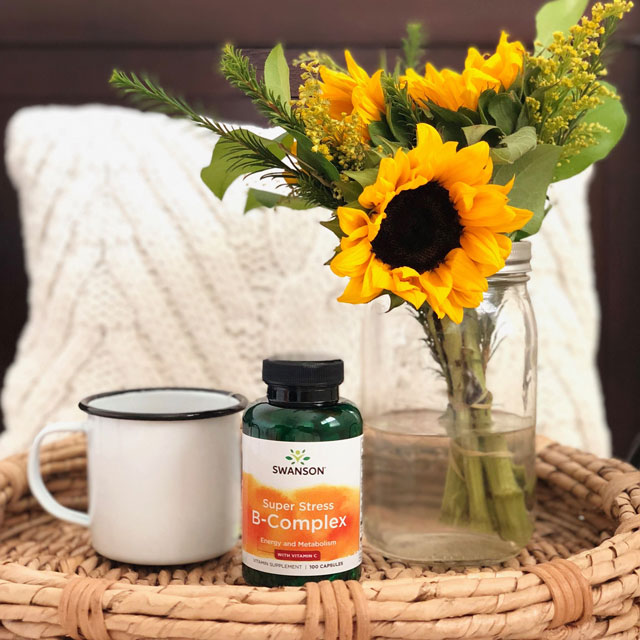Breathe Easier with These Top 10 Herbs
From air pollution to seasonal woes, respiratory health and the factors that influence it are important for us all. The World Health Organization (WHO) estimates that 91% of people across the globe live in places where air pollution exceeds their guideline limits.1 Likewise, millions of people in the United States experience respiratory health concerns each year.2
While there are plenty of things you can do to keep the air around you as fresh as possible, from detoxing your home to using HEPA-certified air filters, some herbal supplements may help give your respiratory system a boost. Here’s a rundown of our top 10 herbs for respiratory health.
Astragalus
Astragalus has been used by Chinese herbalists for thousands of years. Loaded with more than 100 active compounds, including saponins, polysaccharides, amino acids, flavonoids and more, astragalus is used to support the body in many areas, including respiratory health.1 Studies indicate that taking an astragalus supplement may give the respiratory system a boost and help soothe the airways.3 Aside from its respiratory-friendly benefits, astragalus is also a stellar source of antioxidants and supports immune health, cardio function and more.4,5
Mullein
Also known as Verbascum thapsus, the “great mullein” plant can be found in Asia, Northern Africa and Europe. This useful plant provides us with the highly beneficial mullein leaf. Like astragalus, the mullein leaf has a rich history. In fact, its usage can be traced all the way back to the cultures of ancient Greece! Today, mullein leaf is perhaps most commonly used for its ability to boost respiratory and lung health. Traditional herbalists believe that mullein plays a role in helping to soothe the respiratory tract.6
Wild Cherry Bark
Taken from the bark of the black cherry tree, wild cherry bark is packed with minerals like iron, calcium, zinc and magnesium as well as phytochemicals like quercetin and kaempferol. Studies have shown that wild cherry bark may help calm and support the respiratory system, which is due in part to its ability to help soothe the respiratory muscles lining the bronchioles.7 Wild cherry bark supplements are available as both wild cherry bark syrup and wild cherry bark capsules.
Quercetin and Bromelain
Quercetin is a powerful antioxidant flavonoid found in a wide range of foods and plants including apples, various berries, green tea, red grapes, onions and ginkgo biloba. Quercetin’s antioxidant effects help promote immune health and studies have also shown that it can support sinus and respiratory health.8 Quercetin is often combined with bromelain in supplements, since bromelain may enhance the absorption of quercetin, but bromelain offers benefits of its own.
Bromelain is derived from the stem of pineapples and features an impressive range of proteolytic enzymes. Bromelain has been studied for its benefits for sinus and lung health9,10 Together, quercetin and bromelain are a winning combo for respiratory support.
Elecampane Root
The elecampane root may not be a household name, but this relative of the sunflower is a heavyweight in the world of respiratory health and has a rich history of traditional use. Elecampane root’s scientific name is Helenium, after Helen of Troy, and the folklore is that elecampane grew on the spot where her tears fell. Elecampane root has long been used as a traditional boost to respiratory health and for soothing the respiratory system, both useful benefits for battling seasonal effects.11
Oregano
It may be a familiar kitchen herb, but health enthusiasts in-the-know will tell you that oregano is much more than just a flavor-enhancer for your pizza. It provides antioxidants while promoting digestive function, immune function and, you guessed it, respiratory health.12,13 Researchers have reported that oregano supplements may promote a soothing of the respiratory system and improve airflow while boosting immune health.14
Coleus Forskohlii
Coleus forskohlii is one of the more exotic-sounding herbal respiratory supplements on our list, but this member of the mint family has been used for centuries as a respiratory health staple in Ayurvedic traditions. Modern science agrees that this Indian and South Asian herb is a great option for seasonal support. According to studies, taking a coleus forskohlii supplement can have a soothing effect on the smooth muscles of your airways.15
Plantain Leaf
The plantain is a perennial plant that originates from Europe and northern and Central Asia, but can also be found in North America and Australia. It’s a source of flavonoids, including apigenin and luteolin, plus minerals like zinc, iron, potassium and even vitamins A, C and K. Plantain leaf supplements have been traditionally used for boosting respiratory health and seasonal wellness. While its effects on respiratory health are not fully understood, its benefits may be related to vitamin C content which, according to studies, can play a role in supporting healthy lung function.16
Red Raspberry Leaves
You’re likely already aware of some of the health benefits of raspberries, but those delicious berries aren’t the only part of the raspberry plant that's good for your health. The red raspberry leaf is practically bursting with nutrients like alpha-carotene, alpha-tocopherol, niacin, boron, calcium, magnesium, selenium, zinc, tons of antioxidants and a whole lot more! Herbalists dating back centuries have used red raspberry leaf as a traditional tonic to help support the body against the effects of seasonal blahs and boost respiratory function.
Thyme Leaf
Like oregano, thyme leaf is another culinary favorite that doubles as a supporter of good health and its use dates all the way back to the time of the Romans. Thyme is a flowering evergreen shrub and a member of the mint family. Its leaf has been used throughout the ages to boost immune function, support healthy blood pressure already within the normal range and even promote a healthy mood. Thyme is also particularly suited for supporting respiratory health.17 While studies are ongoing, part of thyme’s respiratory health benefits may come from carvacrol, a plant phenol that boosts the body’s immune defenses.18,19
Respiratory Health Supplements
For powerful herbal respiratory support in a convenient combination formula, check out Swanson Condition Specific Formulas Lung Essentials, featuring a patented blend designed to boost seasonal immune function and support the respiratory system. To learn more about your options for improved respiratory health with herbs, be sure to read What Are Herbal Supplements?

About Lindsey Toth, MS, RD
Lindsey is a nationally recognized registered dietitian and nutritionist with a soft spot for pie. She empowers people to take charge of their health by finding the balance between the pleasure and nourishment in food. Her philosophy is that you should take care of your body because it’s the only permanent home you have. It’s what inspired her to pursue a career in nutrition.
*These statements have not been evaluated by the Food and Drug Administration. These products are not intended to diagnose, treat, cure, or prevent any disease.
Sources
1. Air Pollution Stats. World Health Organization. Read source
2. Respiratory Diseases. Office of Disease Prevention and Health Promotion. Read source
3. Astralagus. National Library of Medicine. Read source
4. Abstracts of Reviews of Effects. National Center for Biotechnology Information. Read source
5. Astragalus. Healthline. Read source
6. Astralagus. National Library of Medicine National Institutes of Health. Read source
7. Wild Cherry. WebMD. Read source
8. Out of the Earth: The Essential Book of Herbal Medicine, pg. 314. See source
9. Quercetin. National Library of Medicine. Read source
10. Bromelain. National Library of Medicine. Read source
11. Bromelain. PubMed. Read source
12. Oregano. Healthline. Read source
13. Herbal Therapy. National Center for Biotechnology Information. Read source
14. Aromatic Herbs. National Library of Medicine. Read source
15. Treatment of Respiratory Ailments. PubMed. Read source
16. Forskolin. PubMed. Read source
17. Vitamin C. National Institutes of Health. Read source
18. Thyme. PubMed. Read source
19. Carvacrol. PubMed. Read source




